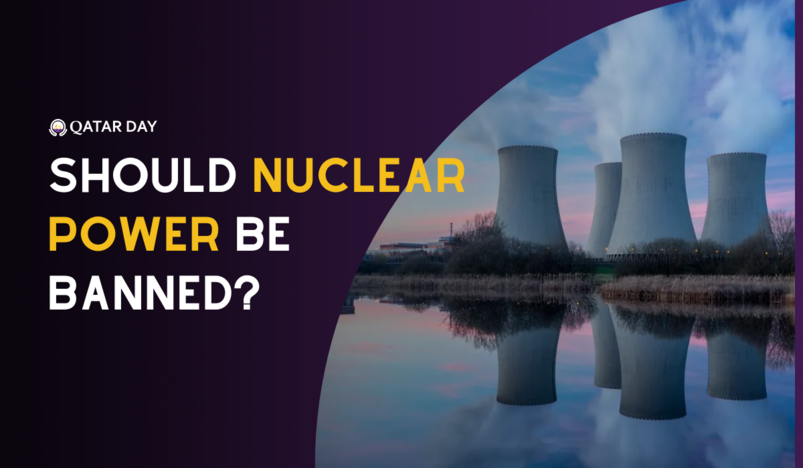
The debate surrounding the utilization of nuclear power has increased in recent years, with some highlighting its efficiency and others emphasizing the associated risks. This article seeks to navigate through the arguments surrounding the question of whether nuclear power should be banned, looking into both its advantages and the concerns it raises.
Advantages of Nuclear Power:
One compelling argument in favor of nuclear power is its capacity to generate large amounts of electricity with minimal greenhouse gas emissions. Nuclear energy plays a crucial role in climate change, offering a low-carbon alternative to traditional fossil fuels. Additionally, nuclear power plants provide a stable and reliable energy source, contributing to the global demand for electricity.
Concerns and risks:
However, the benefits of nuclear power are counterbalanced by significant concerns. One primary worry is the potential catastrophic accidents that can lead to long-lasting environmental damage and human health risks. The events at Chornobyl and Fukushima serve as stark reminders of the devastating consequences associated with nuclear disasters. The disposal of radioactive waste is another critical concern, as it poses challenges in terms of storage and long-term containment.
Nuclear Proliferation and Security:
Furthermore, the proliferation of nuclear technology raises security apprehensions. The potential for the misuse of nuclear materials, either by state or non-state actors, adds a layer of complexity to the debate. Safeguarding against nuclear weapons development becomes an important topic in discussions about the expansion of nuclear power.
Exploring Alternatives:
As the debate unfolds, it becomes imperative to consider viable alternatives to nuclear power. The advancement of renewable energy technologies, such as solar and wind, offers cleaner and arguably safer options for meeting the world's growing energy needs.
In conclusion, the question of whether nuclear power should be banned is examined in light of its advantages and associated risks. Balancing the need for reliable energy sources with the imperatives of environmental and human safety remains a challenge. As technology advances, the search for sustainable and secure energy alternatives continues, steering the global discourse toward a cleaner and safer energy future.
.jpg)
Qatar Secures Place Among the World's Top 10 Wealthiest Nations
.jpg)
Hamad International Airport Witnesses Record Increase in Passenger Traffic

Saudi Arabia: Any visa holder can now perform Umrah

What are Qatar's Labour Laws on Annual Leave?
Leave a comment